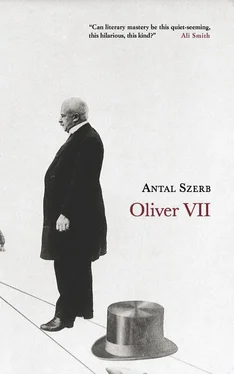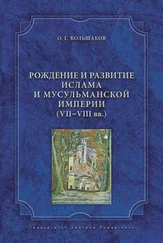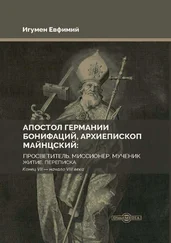The first, with his black suit, gold-rimmed spectacles and impossibly narrow face, was Dr Delorme. Sandoval knew him well, and went across to him. The other man he had never seen before. He was extremely tall, with an austere, intelligent face; his hair, which was unusually straight for an Alturian, was slicked down flat against his head.
“Sandoval,” Delorme introduced him to the stranger.
The man clicked his heels, held out his hand, but did not give his name. Then he drew back into a dimly lit corner of the room.
“Well?” asked Delorme.
“I spent fifty taller,” Sandoval replied. “I paid the bill at the Chateau Madrid.”
It amused him to see how much it disconcerted Delorme that he should begin with this trivial demand. Delorme was obviously struggling to conceal his nervous excitement.
“Of course. Here you are.” He handed over a fifty taller note.
“And now, if you would be so kind as to give us your report.”
“No,” thought Sandoval, “you could never make him forget his manners. He’s not what you’d imagine, for a rabid demagogue.”
And he recounted his tale. As he spoke, the stranger drew closer to him, studying him intently.
“Splendid, really splendid!” remarked Delorme. “Only an artist could have accomplished that. I particularly like the way you timed the Countess’ arrival.”
“It was very simple. I sent her an anonymous letter saying that if she wished to expose her husband she should come to the Chateau Madrid at six. I know how jealous she is.”
Delorme turned to the stranger.
“This place in the country where they’ve taken him is manned by our people, masquerading as household staff. If necessary, they’ll detain him by force. But it won’t be needed. Fear of his wife will be much more effective.”
“Thank you, Sandoval,” said the stranger, and again offered his hand.
“Glad to be of service. Might I ask one favour in return? I don’t like being a blind instrument. If there’s no special reason why you can’t, would you explain why it was necessary to get that pious idiot out of the capital?”
“Why?” the stranger replied. “Because it’s his job as Chief Steward to select the regiment responsible for guarding the palace the following day. Since he won’t be there tomorrow, I shall have to choose it myself.”
Sandoval glanced quizzically at Delorme.
“The gentleman you are speaking with is Major Mawiras-Tendal, His Highness’ principal aide-de-camp.”
Sandoval bowed, rather maladroitly. What he had heard astonished him. The King’s aide-de-camp and close friend was involved in this business? How very widespread the discontent must be …
It had barely touched him personally. As a mere painter he understood little of the economic problems that had produced it. The King himself was a kind and intelligent man, extremely sympathetic in Sandoval’s opinion. It was only his loathing of petty-bourgeois complacency that had brought him into Delorme’s camp. That, and the love of gambling, and of the unexpected — in a word, the desire to live dangerously.
“And the day after tomorrow,” the Major continued, “the Twelfth Regiment is on guard at the palace. It’s the one regiment in which we can count on every man. Do you follow me?”
“So, then. The day after tomorrow?”
“The day after tomorrow.”
The Major shook hands and left. Sandoval stood staring after him, speechless.
“Well, well. He too?”
“He especially. He’s closer than anyone to the Nameless Captain.”
“Extraordinary.”
“Don’t forget that Mawiras-Tendal is the grandson of the great revolutionary hero after whom every street in Alturia is named.”
“Blood being thicker than water … ”
“So it seems. Sometimes these truisms turn out to be true. Life holds no greater surprise.”
“Have you any orders for me, for tomorrow?”
“My orders? I must ask just one thing of you. I’d be very glad if you would take yourself off to Algarthe and call on the Duke. You’re the only one of our people they’ll allow in, now that he’s kept under such close guard. They know you as his portrait painter, and the thing is, no one will take you seriously. That’s why you are so priceless to us.”
“I must resist this notion of pricelessness. I can be paid at any time … ”
“I know,” Delorme replied with a smile. “And I am sure you’ve had little cause to complain so far. I was thinking of pricelessness in the moral sense. So, then, Algarthe … ”—and he stroked his forehead wearily. He seemed to be having difficulty focusing his thoughts. Then he continued:
“My God, I’m so tired. After we’ve brought this revolution off I shall retire for a fortnight to that sanatorium for journalists. If only I don’t have to become Prime Minister! Anyway, as I said, Algarthe … have a word with the Duke. You know how to talk to him. Try to knock some sense into him. Prepare him for what’s coming. If it comes completely out of the blue, he’s so frail it could affect him badly. It could even kill him, and then we’re right back where we started. Send me a report on his condition afterwards. And now, God go with you. I’ve got a whole series of reports to get through tonight. About the navy, the universities, the winegrowers’ association, the market traders … we’re carrying the whole country on our backs. God be with you. And please, spare me the password, and can we do without with the secret handshake? I’m tired.”
The situation in Alturia was as follows. Simon II, father of the present king, Oliver VII, had been an outstanding ruler, and the country had suffered in consequence ever since. He modernised the army uniform, established elementary schools, introduced telephones, public ablutions and much else besides, and all this benevolent activity had exhausted the state finances. Besides, as we all know from our geography books, the Alturian people are of a somewhat dreamy nature, fanciful and poetically inclined.
Along with the throne, Oliver inherited a chaotic financial situation. A man of true Alturian blood, he shared the dreamy nature of his people and showed little aptitude for fiscal matters. It seems too that he was unfortunate in his choice of advisers, who grew steadily richer as the public purse grew lean. To pay the state representatives on the first of each month the Finance Minister had at times to resort to near-farcical expedients, such as doling out their entire salaries and expenses in copper coins from the toll on the capital’s Chain Bridge. Malicious tongues even claimed that it was his masked men who carried out that daring break-in at the Lara branch of Barclays Bank.
At that point the Finance Minister, Pritanez, in an attempt to head off the discontent that was reaching revolutionary fervour, accepted a plan to reorganise the entire economy.
The Alturian people’s almost exclusive sources of revenue were wine and the sardine — the famous red wine of Alturia, preserving in drinkable form the memory of southern days and southern summers; and the famous Alturian sardine, a small but congenial creature, the comfort of travellers and elderly bachelors alike, when served in oil, or with a little fresh tomato. For centuries the principal market for Alturian wine and sardines had been the affluent citizens of Norlandia, under whose gloomy skies the grape never grew, and whose chilly shores the sardine took care to avoid.
When, in the early years of Oliver’s reign, the national purse began to show alarming signs of atrophy, Finance Minister Pritanez received a visit one fine day from the renowned Coltor. This Coltor was the greatest business tycoon in Norlandia. Legends abounded of his unbelievable wealth, and of his astonishing talent for buying and selling. He did not deal in mines, factories, land or newspapers, as did other great financiers. Instead he marketed innovations. For example, throughout Norlandia and all the neighbouring states, he retailed a half-pair of shoes, to be purchased in case of inadvertent loss of the other half. By some remarkable feat of technical ingenuity the left shoe would also fit the right foot and the right shoe the left. It was he who introduced the practice of building house walls with onions, developed the textile cigarette and the ant-powered spirit lamp; and he who found a way to convert the famous fogs of his homeland into edible oil. There was no counting the number of discoveries he had harnessed for economic exploitation.
Читать дальше












